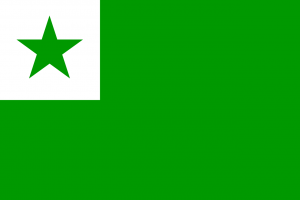Language/Esperanto/Grammar/Interrogative-Sentences
Interrogative sentences usually begin with an interrogative pronoun:
| English Question | Esperanto Question |
|---|---|
| Who are you? | Kiu estas vi? |
| Who is in the room? | Kiu estas en la ĉambro? |
| What is that? | Kio estas tio? |
But there are also sentences that don't start with an interrogative pronoun:
- Is the sun shining?
- Is he healthy?
- Is the girl pretty?
We can identify those sentences as interrogative sentences because of the use of the question mark (?) and the special word order.
In Esperanto the word order is more flexible and therefore doesn't directly show you it is an interrogative sentence, but there is a solution.
In Esperanto, a sentence that doesn't start with an interrogative pronoun gets the word Ĉu to indicate it's a question.
It could be translated as "Is it true that..." or "Do/Does", but it doesn't have to be translated.
It only indicates that the sentence is an interrogative sentence, a question. Note that the word order doesn't change as it does in English:
| English | Esperanto |
|---|---|
| He is sick | Li estas malsana |
| Is he sick? | Ĉu li estas malsana? |
| My son is happy | Mia filo estas kontenta |
| Is my son happy? | Ĉu mia filo estas kontenta? |
Sources[edit | edit source]
https://unilang.org/course.php?res=64
Other Lessons[edit | edit source]
- Conditional Mood
- Negation
- WORD BUILDING
- THE CORRELATIVES
- CONJUNCTIONS
- Gender
- Plurals
- THE PARTICIPLES
- Word Order
- Pronouns

